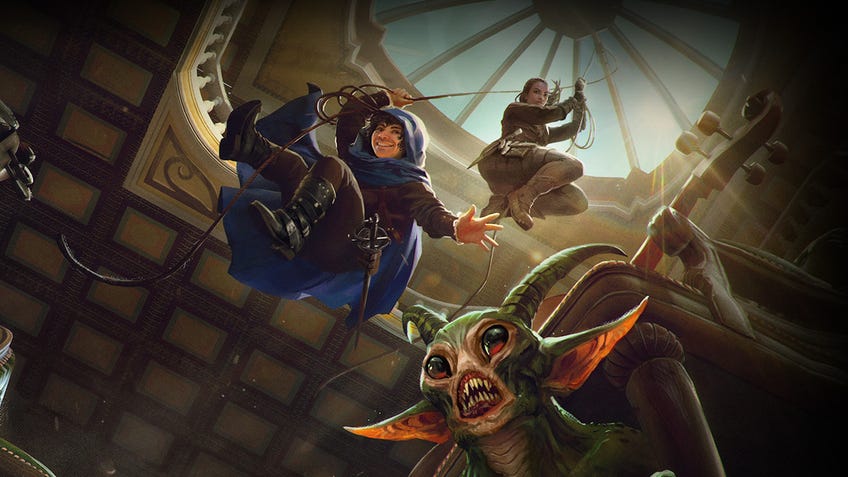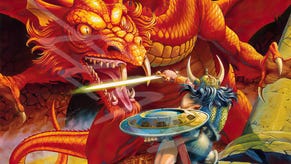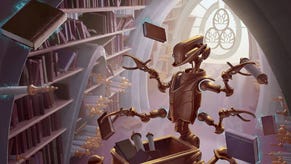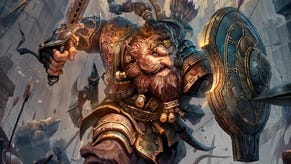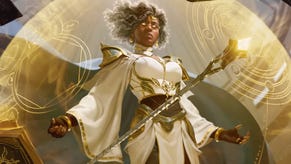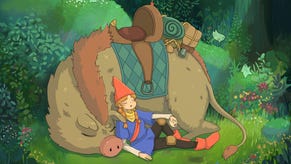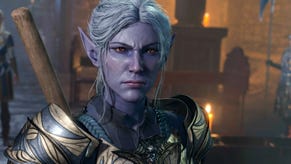D&D abandons quest to update OGL after massive negative survey response
Publisher Wizards of the Coast instead puts even more content into the Creative Commons.
Dungeons & Dragons’ publisher will no longer seek to update the Open Gaming Licence (OGL) in any way. Wizards of the Coast announced on January 27th that its protracted, fractious negotiation with fans and creators would come to an end, and D&D’s entire System Reference Document (SRD) 5.1 would instead be released under a Creative Commons licence.
Kyle Brink’s post to the D&D Beyond blog, the de facto home for player-facing communication since this fiasco first erupted near the beginning of January following io9’s reported leak, began by listing the feedback Wizards’ received from a recent survey of reactions to its playtested licence. More than 15,000 submissions showed overwhelming dissent (8*% or higher) for the proposed OGL 1.2, along with its adjoining virtual tabletop policy and the highly contested deauthorisation of the current OGL 1.0a.
A strong majority (62%) of respondents agreed with Wizards’ proposed plan to move parts of SRD 5.1 into the Creative Commons and, according to Brink, the rest only wanted more. So, that’s exactly what Wizards of the Coast plans to do.
The OGL 1.0a will remain a viable licence for anyone wishing to publish third-party material using D&D’s foundational rules expressions and mechanical framework. That means nothing changing for virtually anyone already producing books, supplements or other play material. The largest change is the new CC-BY-4.0 licence that now includes the entire SRD 5.1, effectively allowing anyone to use its contents as long as they include a one-paragraph attribution somewhere in the work.
“This Creative Commons licence makes the content freely available for any use. We don't control that licence and cannot alter or revoke it,” Brink wrote. “It's open and irrevocable in a way that doesn't require you to take our word for it. And its openness means there's no need for a VTT policy. Placing the SRD under a Creative Commons licence is a one-way door. There's no going back.”
This decision will no doubt be celebrated as a victory by those who started the #openDND movement and associated petition, signed by thousands of fans, players and creators. Pathfinder and Starfinder maker Paizo joined several peers to create their own OGL-alike called the Open RPG Creative Licence (ORC). Publishers in Europe recently announced their own coalition of dissent against Wizards of the Coast, proving oceans as no border for the Wizards’ bad press.
Brink concluded by saying the company’s intent was always to “protect the D&D play experience into the future”. Official responses ranged from dismissive shrugs to abject apologies over the last few weeks, but Wizards never stopped trotting out the threat of third-party NFTs and harmful content sneaking its way into game content without their updated legal protections.
“We still want to do that with your help. We're grateful that this community is passionate and active because we'll need your help protecting the game's inclusive and welcoming nature,” Brink wrote. “We wanted to limit the OGL to TTRPGs. With this new approach, we are setting that aside and counting on your choices to define the future of play.”
Whether you read that as begrudging acceptance or self-righteous defeat will likely depend on your view of Wizards and its corporate owner, toy giant Hasbro. Releasing SRD 5.1 into the Creative Commons is a truly irrevocable decision, though. Whatever the future of D&D holds, nobody will be slammed with a takedown for appropriating owlbears and magic missiles.
